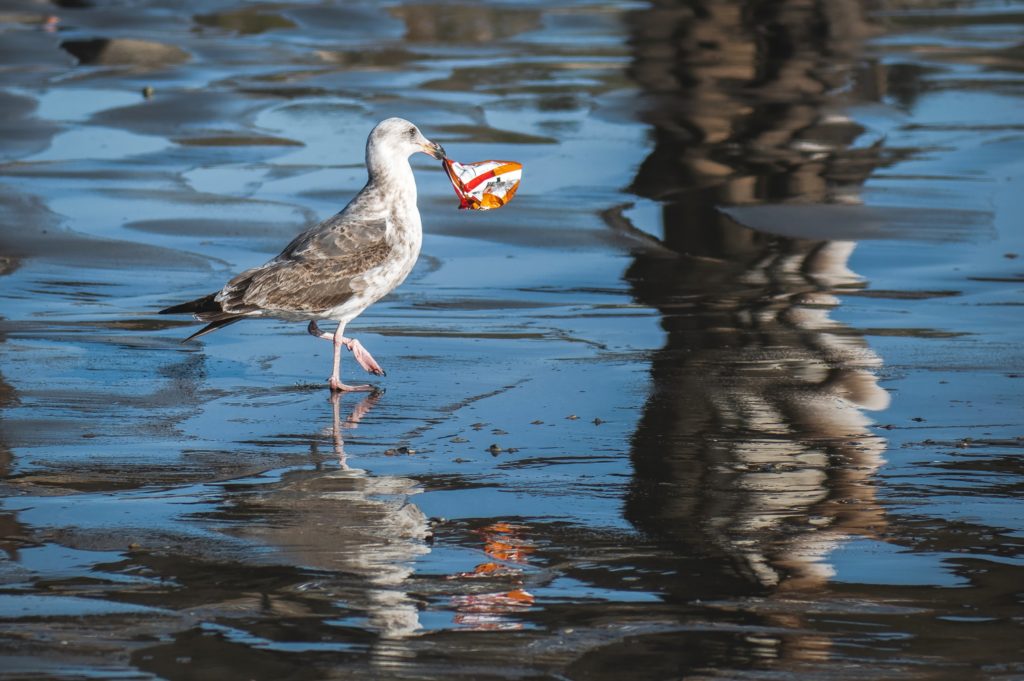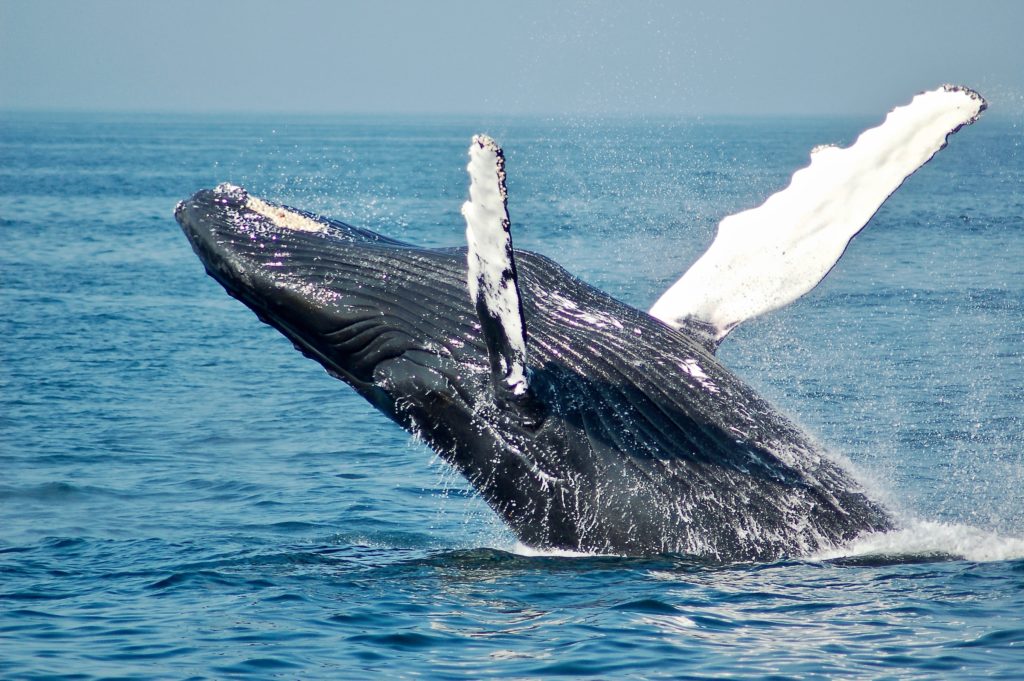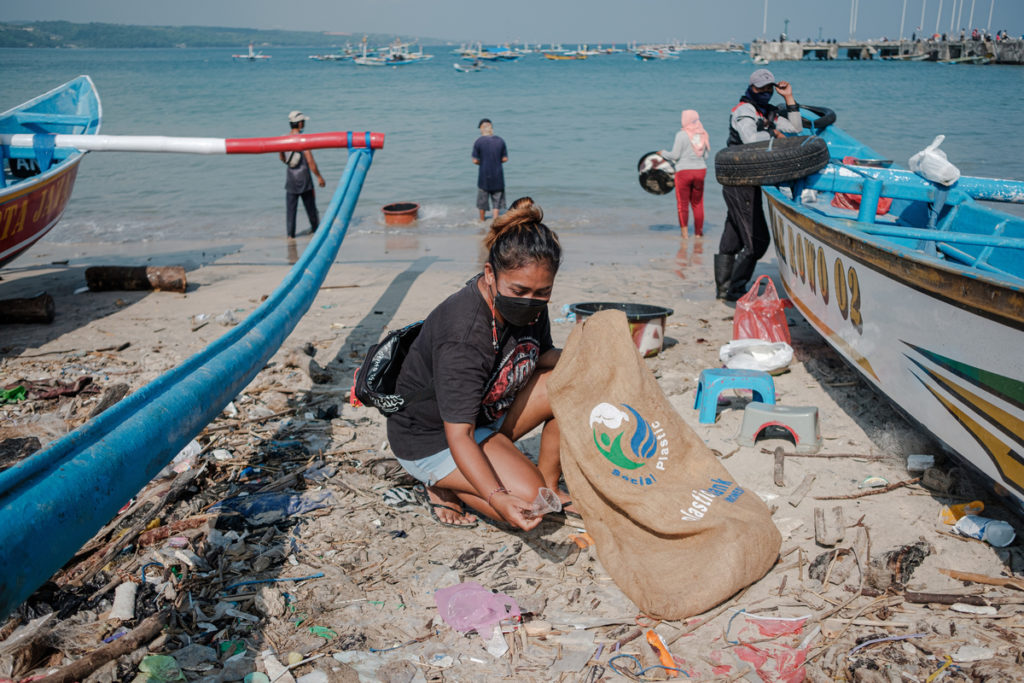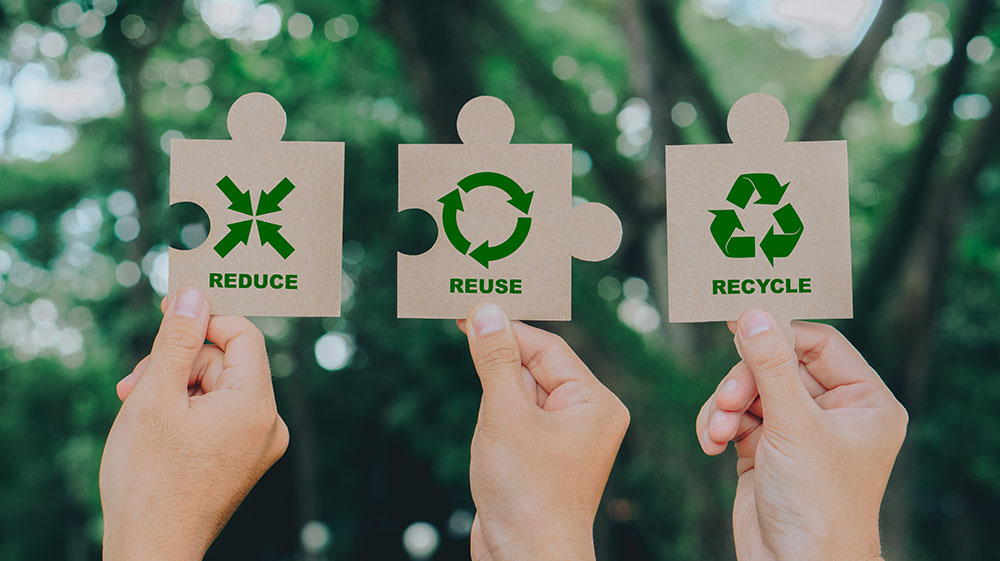

Why do marine animals eat plastic even when it makes them sick?
Written by
on
3 minutes to read

Ocean plastic is one of the greatest threats to our marine ecosystem, harming more than 800 species that call it home1. Over the years, news about marine animals dying from ingesting plastic waste has become more and more common.
But isn’t it strange that animals would choose to eat plastic in the ocean over their usual prey? Why would plastic bags be appetizing to sea creatures? To understand why they do it, we must see the world as they do.
Ocean plastic looks like food
Matthew Savoca of NOAA Southwest Fisheries Science Center in California explains ocean animals have different sensory and perceptive abilities compared to humans2. While some marine creatures like turtles can identify food through vision, their eyesight is unlike ours due to their capacity to see UV light. So a foraging sea turtle can mistake a flimsy plastic bag underwater for a jellyfish.
 Photo by Tim Mossholder on Unsplash
Photo by Tim Mossholder on Unsplash
Ocean plastic smells like food
How ocean plastic smells is also a factor. According to research, many marine animals rely on their sense of smell to hunt for food3. For seabirds like albatross, the scent of algae signals the presence of food. It’s mainly because algae is a primary food source for krill, a small crustacean consumed by aquatic birds.
Unfortunately, plastic gets colonized by algae within days or weeks of being in the sea. So these birds end up plucking plastic fragments from the ocean instead of their regular meal.
 Photo by Todd Cravens on Unsplash
Photo by Todd Cravens on Unsplash
Ocean plastic sounds like food
Aquatic mammals, such as whales and dolphins, locate their prey using sound beams – also known as echolocation. Cuvier’s beaked whales, for example, hunt squid and gelatinous creatures deep into the sea where it’s pitch black.
Instead of relying on sight, these whales depend on sound to identify their meal. Sadly, the echo of ocean plastic is very similar to their usual prey4. As a result, they swallow kilograms of plastic and eventually die of intestinal blockage and starvation.
How can you help stop ocean plastic?

Marine animals don’t understand the threats of plastic pollution as we do. It’s estimated that 100,000 of them die from plastic ingestion or entanglement each year5. When are we going to stop this from happening? It’s our responsibility to act now to save the ocean and all that call it home. Here are some things you can do to be part of Social Recycling and stop ocean plastic.
- Learn more about plastic pollution – Educate yourself about the effects of marine plastic pollution to help you make sustainable choices in your daily life.
- Start conversations about the problem – Talk about plastic pollution with friends or post it on social media. Let your voice influence others to be responsible for how they manage plastic waste.
- Walk the talk – Sort your plastic waste before disposal, reuse plastic in your household, bring recyclables to your local plastic collection branches, or join a coastal cleanup drive in your community – your actions will inspire others to care for our environment.
- “New UN report finds marine debris harming more than 800 species, costing countries millions,” UN News, December 5, 2016, https://news.un.org/en/story/2016/12/547032-new-un-report-finds-marine-debris-harming-more-800-species-costing-countries
- Josh Gabbatiss, “Why marine animals can’t stop eating plastic,” BBC Earth, https://www.bbcearth.com/news/why-marine-animals-cant-stop-eating-plastic
- “Animals Eat Plastic Because it Smells Like Food,” National Georgraphic, November 9, 2016, https://education.nationalgeographic.org/resource/animals-eat-plastic-because-it-smells-food
- Thomas Moore, “Sky Ocean Rescue: A Plastic Whale,” Sky News, June 23, 2017, https://news.sky.com/feature/sky-ocean-rescue-a-plastic-whale-10917187
- “Plastic in our oceans is killing marine animals,” WWF Australia, July 1, 2021, https://www.wwf.org.au/news/blogs/plastic-in-our-oceans-is-killing-marine-mammals
More Plastic Pollution and Recycling articles


6 ways to make Earth Day every day
Photo by Markus Spiske on UnsplashShe provides us with the air we breathe, the water we drink, and the…

The Coca-Cola plastic waste solution: Design, Collect, and Partner
The Coca-Cola plastic waste solution: Design, Collect, and Partner

Plastic packaging: is it a problem?
Navigating the intersection of sustainability and convenience, we tackle the complex journey with plastic. How can we reshape our connection to it?
